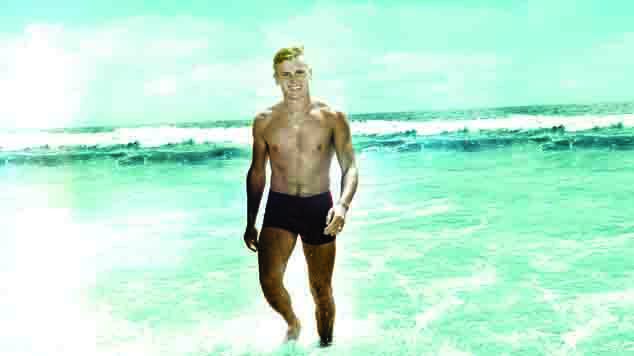In 2003 Britain’s House of Lords voted in favour of repealing a controversial law ‘Section 28’ which had been introduced in 1988 by the Thatcher government.
The laws had been brought in as the number of gay men dying as a result of the AIDS crisis was rapidly growing and anti-LGBT sentiment was rife in British society. In the year before the laws were introduced polls showed that 75% of Britons that homosexuality was “always or mostly wrong”.

The additional laws added to the Local Government Act stated that local government authorities “shall not intentionally promote homosexuality or publish material with the intention of promoting homosexuality” or “promote the teaching in any maintained school of the acceptability of homosexuality as a pretended family relationship”.
The legislation was focused on teaching in schools, and prohibiting books that showed rainbow families. Despite wide-spread protest the laws were introduced in 1988.
Many prominent people campaigned against the laws being introduced including Sir Ian McKellen, Michael Cashman, Mo Mowlam, Annette Crosbie, Jane Horrocks, Helen Mirren and Alan Moore. Boy George wrote the song No Clause 28 to highlight the opposition to the legislation.
In 2000 the first attempt to repeal the laws was launched in the House of Commons, but the legislation failed to get support in the House of Lords. A campaign against repealing the laws was lead by Baroness Young, the Shadow Education Secretary. The laws were however removed in Scotland, which by this time had an independent parliament.
A second push to change the laws came in 2003, and was approved by the House of Commons in February of that year. When the bill was debated in the House of Lords it was successfully passed.
Baroness Young died in 2002. Following her death gay rights activist Peter Tatchell declared Baroness Young had “poisoned society with prejudice and intolerance” and that “future historians will rank her alongside the defenders of apartheid. She supported homophobic discrimination to the last.”
The laws finally received Royal Assent in September 2003, ending 15 years of discrimination against LGBTI people and their families. The effect of the laws has however been long lasting, a 2015 report into bullying in British Schools found that a significant proportion of teachers still believed they were not allowed to discuss LGBTIQ+ related issues in the class room.
The hit TV series It’s a Sin depicts the laws in action, when gay teacher Ash is sent to ensure they are no books with homosexual references or characters in the school library.

Hollywood heartthrob Tab Hunter was born on this day
Tab Hunter was a matinee hunk in the 1950s and 1960s and starred in many films opposite screen legends including Natalie Wood, Rita Hayworth, Sophia Loren and Debbie Reynolds.
Later in his career he appeared in several camp comedies including John Waters Polyester and acting alongside the legendary drag queen Divine in Paul Bartel’s Lust in the Dust.
While the actor was romantically linked to many of his leading ladies he later shared that this was just part of the studio’s publicity machine, and he was actually gay.
His 2005 autobiography Tab Hunter – Confidential documented the reality many gay actors faced in the 1950s that they were forced to keep up a pretense of being heterosexual and lived in constant fear of being outed by tabloid magazines.
The book was adapted into a feature documentary that screened as part of the 2015 Revelation Perth International Film Festival.
In the book and subsequent film he recount how he thought his career might be over when a gay party he was attending in the 1950s was raided by police. Newspapers reported that he was arrested for ‘disorderly behaviour’.
Hunter was born Arthur Andrew Kelm in New York City in the 1930s but grew up in California. His parent’s divorced when he was a child and he and his brothers reverted to his mother’s maiden name Gelien.
He lied about his age and joined the coast guard when he was just fifteen. His colleagues nicknamed him Hollywood because he preferred to watch films during his free time rather than go to bars. When his age was discovered he was discharged.
After meeting actor Dick Clayton socially he was introduced to talent agent Henry Wilson who specialised in ‘pretty boy’ film stars, he also represented actors Robert Wagner and Guy Madison. Wilson renamed Andrew Gelien, turning him into Tab Hunter.
After appearing in smaller parts in several films he was offered a contract at Warner Brothers. He appeared alongside John Wayne and Lana Turner in 1955s The Sea Chase and played Robert Mitchum’s younger brother in Track of the Cat.
The following year he filmed back to back pictures with Natalie Wood, but turned down the opportunity to make a third picture alongside the star.
Hunter also found success on the pop charts recording several records and he also appeared in the musical Damn Yankees. The actor had his sights on the lead role in West Side Story but lost out to Richard Beymer.
Hunter continued making Hollywood films throughout the early 1960s and also made several films in England. He also made his Broadway debut appearing opposite Tallulah Bankhead in Tennessee Williams The Milk Train Doesn’t Stop Here Anymore.
In the late 1960s and into the 1970s Hunter made less films and spent some time living in the south of France. In the 1980s he returned to film screens appearing in independent films by directors including John Waters and Paul Bartel.
Hunter confirmed that he had long term relationships with actor Anthony Perkins and champion figure skater Ronnie Robertson. Hunter had been in a relationship with film producer Alan Glaser for over 35 years when he passed away in 2018. He died aged 86 on 8th July, just a few days short of his 87th birthday.
OIP Staff, this post was first published in 2022 and has been updated.





